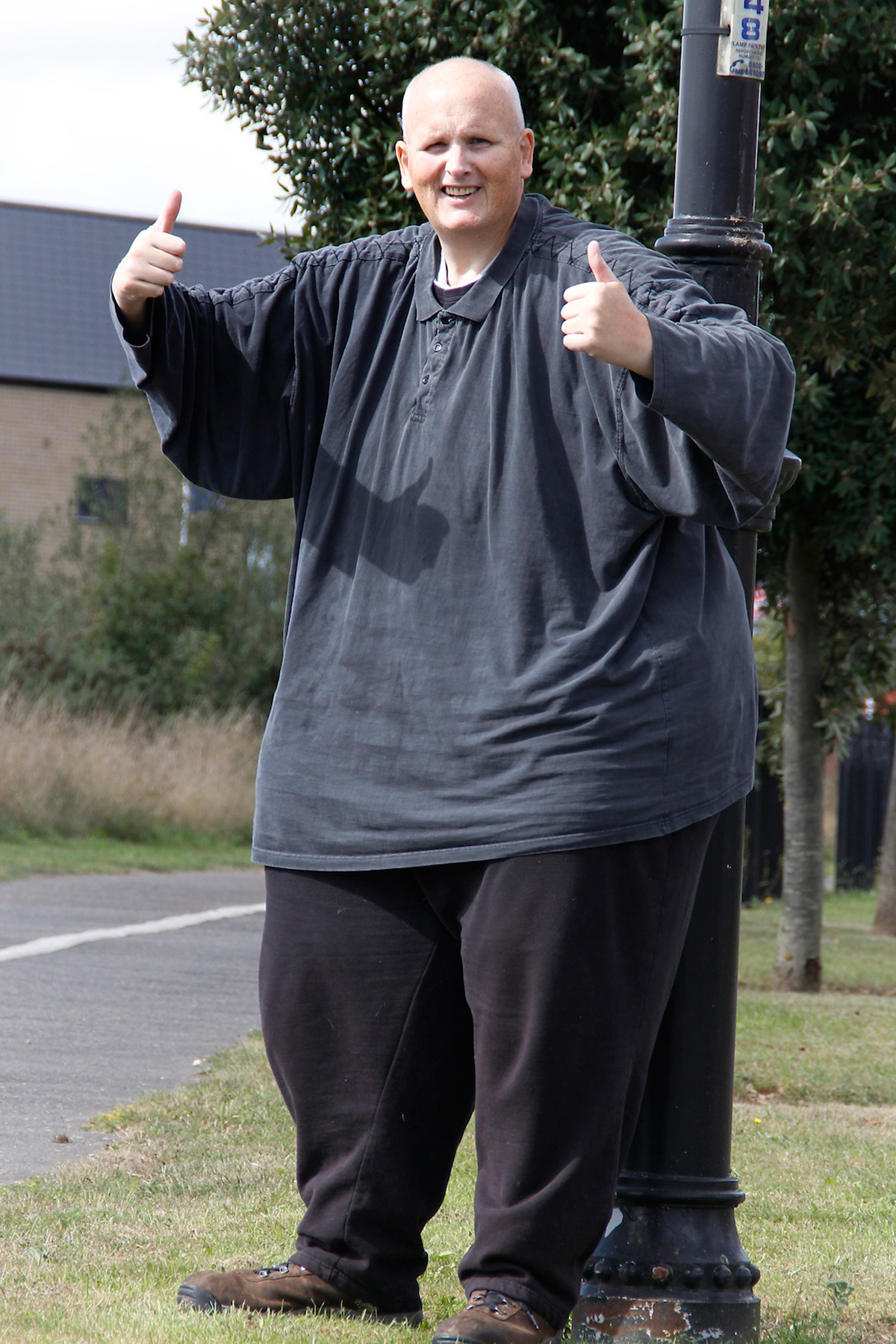Real Weight Loss: Paul Mason

Paul Mason during his weight loss journey. Photo provided to bostonmagazine.com by Paul Nixon.
A lot has happened to Paul Mason over the past few years. He moved from England to Orange, Mass. He got engaged. He also had gastric bypass surgery and lost 600-pounds.
Mason, formerly called the “heaviest man in the world” at 980-pounds, is now living in his recently-adopted hometown of Orange, preparing for an operation he has waited for for years: a procedure that would remove his excess skin, which he says weighs as much as 100-pounds.
It’s a surgery he may have never received without a Massachusetts woman named Rebecca Mountain.
“In 2012, Rebecca Mountain got in touch with me [after seeing my ‘TLC’ documentary, “The World’s Fattest Man”],” Mason remembers. “She wanted to know how my life was and everything, and I was telling her about the excess skin I’ve been left with. Back in the U.K. they refused to give me funding to have that removed, so I couldn’t move on with my life. She said she could help me with the press over here and see if we could raise some money to get this surgery done.”
The two communicated via Skype and email for a few months and, Mason says, “we fell in love.” He moved to Mountain’s hometown of Orange and they got engaged last January. They’ve successfully scheduled a pro bono skin removal operation for Mason in New York in January, but he says the couple still needs to raise about $12,000 for his post-operative care and has launched a YouCaring fundraiser to do it.
Sam Lin, a plastic surgeon at Beth Israel Deaconess Medical Center—who is not involved in Mason’s case—says skin removal procedures rarely approach the severity of Mason’s. “On average, the tummy skin or fat that is removed is generally no more than five pounds,” Lin says. “These procedures are not weight loss procedures. They are contouring procedures to help folks wear clothes better, move about their daily routine better, and be more comfortable.”
While Mason may be nearing the end of his weight loss journey, it took many years to get there. He’s something of a celebrity in England, has appeared on “The View,” and has had write-ups in publications like the New York Times and the Daily Mail.
Mason remembers the morbid fascination with his lifestyle back in his hometown, and how the focus was always on his food intake and not the addiction aspect of his life. “[The U.K. media was] not interested in dealing or even talking about the addiction side of things. All they want to know is about how much food I used to eat and all that sort of thing,” he says. “That’s long gone, so they should be focusing on how I’m trying to regain my fitness, my stamina, and the next step in my journey.”
Mason’s upcoming surgery is among the last major steps of that journey, one that began in 2008 with an “ah-ha” moment. “I woke up one morning and I had all these things going on in my mind from my early childhood, and I was getting really depressed in the situation I was in,” Mason remembers. “I always knew that if I got a little bit of help by the gastric bypass surgery, that I could do the rest. I’d been waiting like 10 years, repeatedly applying for funding and we were constantly turned down for funding.”
Mason began seeing a therapist to address his food addiction and the childhood trauma that he says caused it, and he finally got the funding he needed for gastric bypass surgery in 2010. That, Mason says, is when the real work began. “Gastric bypass surgery is only a tool. You have to completely associate differently with the way food is, because otherwise it’s not going to work,” he says. “I was determined that this was going to work. I had wanted to [tell] people that didn’t have a lot of faith in me and said, ‘Oh, it’s just a waste of money, he’s not going to change his life around.’ And I thought, I’m going to make them eat their words.”
And 600-pounds later, he has.
Mason says he’s confident his progress will only continue, since once his extra skin is removed his mobility will drastically increase. Today, he and Mountain go to their local YMCA three times a week, and Mason is working his way up to swimming for the first time in decades. “That’s one thing I do like about the health service over here, you’ve got to deal with what’s causing the issue rather than sticking plaster on the problems and getting on with it,” Mason says of his efforts to improve his lifestyle.
As he continues to work toward a healthy weight, Mason says one of his main goals now—as always—is helping others in similar situations. “I realized way back when I was extremely heavy that there was no one to talk to in my situation, and it’s quite a lonely life,” Mason says. “I thought, well, this is a good chance for me to work with the media and to help other people. If I can reach out and other people can see that they can turn their life around if they make a few changes in their life, that’s why I do it.”


